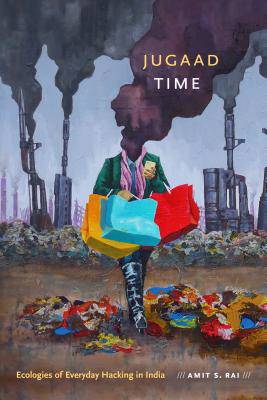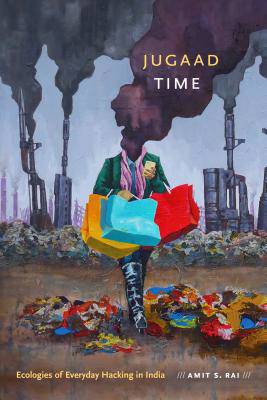
- Afhalen na 1 uur in een winkel met voorraad
- Gratis thuislevering in België vanaf € 30
- Ruim aanbod met 7 miljoen producten
- Afhalen na 1 uur in een winkel met voorraad
- Gratis thuislevering in België vanaf € 30
- Ruim aanbod met 7 miljoen producten
Zoeken
Omschrijving
In India, the practice of jugaad--finding workarounds or hacks to solve problems--emerged out of subaltern strategies of negotiating poverty, discrimination, and violence but is now celebrated in management literature as a disruptive innovation. In Jugaad Time Amit S. Rai explores how jugaad operates within contemporary Indian digital media cultures through the use of the mobile phone. Rai shows that despite being co-opted by capitalism to extract free creative labor from the workforce, jugaad is simultaneously a practice of everyday resistance, as workers and communities employ hacks to oppose corporate, caste, and gender power. Locating the tensions surrounding jugaad--as both premodern and postdigital, innovative and oppressive--Rai maps how jugaad can be used to undermine neoliberal capitalist media ecologies and nationalist politics.
Specificaties
Betrokkenen
- Auteur(s):
- Uitgeverij:
Inhoud
- Aantal bladzijden:
- 232
- Taal:
- Engels
- Reeks:
Eigenschappen
- Productcode (EAN):
- 9781478001102
- Verschijningsdatum:
- 15/02/2019
- Uitvoering:
- Hardcover
- Formaat:
- Genaaid
- Afmetingen:
- 157 mm x 234 mm
- Gewicht:
- 430 g

Alleen bij Standaard Boekhandel
+ 412 punten op je klantenkaart van Standaard Boekhandel
Beoordelingen
We publiceren alleen reviews die voldoen aan de voorwaarden voor reviews. Bekijk onze voorwaarden voor reviews.











